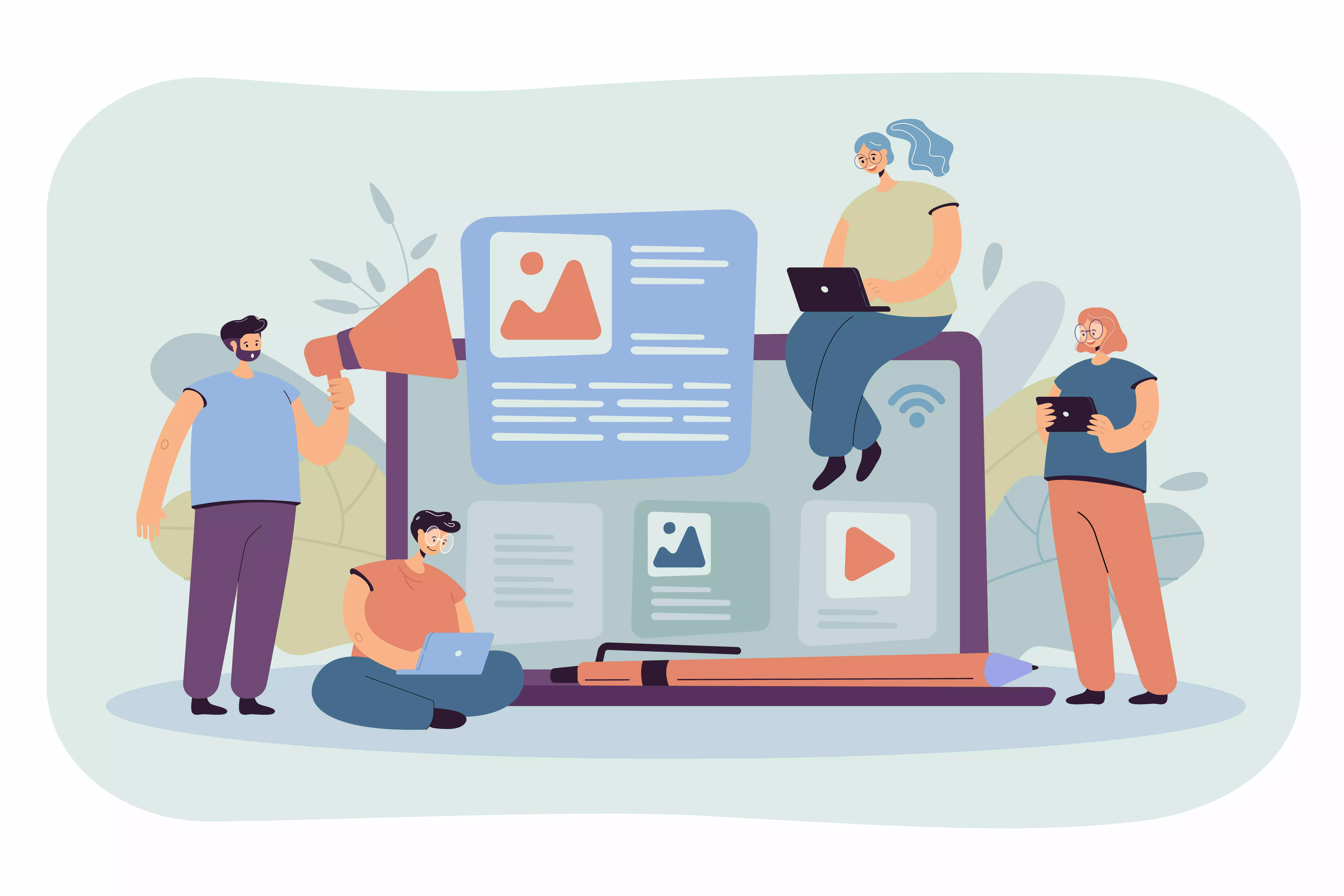How Enterprise LMS Benefits from DRM Products to Secure Learning Content
image for illustrative purpose

In the world of corporate training and education, Enterprise LMS (Learning Management Systems) play a critical role in delivering, managing, and tracking employee learning programs. As organizations increasingly rely on online learning to upskill their workforce, ensuring the security of sensitive learning materials becomes more important than ever. That's where DRM products (Digital Rights Management) come into play. DRM products help organizations protect their intellectual property, ensuring that only authorized users can access valuable content, while also preventing piracy or unauthorized distribution. In this blog, we'll explore how DRM products can enhance the security and functionality of an Enterprise LMS and why they are essential for large-scale eLearning solutions.
Understanding the Role of an Enterprise LMS
An Enterprise LMS is a robust software platform used by large organizations to deliver and manage eLearning content. These systems are designed to handle the training needs of large, geographically dispersed teams and can scale to support thousands of users. Enterprise LMS platforms offer a wide range of functionalities, including:
Course creation and management
User management and progress tracking
Reporting and analytics
Integration with other business systems (such as HR and CRM software)
Support for multiple content formats (videos, documents, quizzes, etc.)
Multi-language support for global teams
While Enterprise LMS platforms provide a comprehensive solution for managing employee learning, they must also address the growing challenge of content security. With the rise of online learning, organizations are increasingly concerned about the protection of their proprietary training materials. Unauthorized access, content piracy, and data breaches can have serious financial and reputational consequences. This is where DRM products come into the picture.
What Are DRM Products?
DRM (Digital Rights Management) is a set of technologies designed to protect digital content by controlling access and usage rights. In the context of eLearning, DRM products safeguard valuable intellectual property, such as video lectures, training materials, assessments, and more, from unauthorized distribution or piracy. DRM solutions work by encrypting content and applying access controls, ensuring that only authorized users can view or interact with the materials.
Key features of DRM products for eLearning include:
Content encryption: DRM encrypts the content, making it unreadable to anyone without the appropriate decryption key.
Access control: Organizations can control who has access to specific content, based on user roles or permissions.
Watermarking: DRM products can add watermarks to videos or documents, making it easier to trace unauthorized copies.
Device restrictions: DRM allows organizations to restrict access to content based on specific devices or locations, preventing unauthorized sharing.
Time-based access: DRM products can limit access to content based on time, ensuring that users can only view materials during a specified period.
Why DRM Products Are Essential for Enterprise LMS
Protecting Intellectual Property - Corporate training materials are often the result of significant investment in terms of time, expertise, and resources. From industry-specific knowledge to proprietary methodologies, the content shared via an Enterprise LMS is an organization’s intellectual property. Without proper protection, this content can be easily shared or pirated, resulting in lost revenue and competitive disadvantages. DRM products ensure that this valuable content remains secure, with access granted only to authorized personnel, protecting the organization’s investment.
Preventing Unauthorized Sharing and Piracy - One of the biggest challenges for organizations is controlling how their learning content is shared once it’s delivered via the LMS. Employees or trainees could potentially download, copy, or redistribute materials without permission. DRM products prevent this by applying strict controls over who can access, download, or share the content. Features like watermarking also act as a deterrent for unauthorized sharing, as any illicit distribution can be traced back to the original source.
Ensuring Compliance and Security - Many industries, such as finance, healthcare, and government, are subject to strict regulatory requirements regarding data security and privacy. Organizations in these sectors must ensure that their learning content, which may include sensitive information, complies with security regulations. DRM products add a layer of security by encrypting content and enforcing strict access controls. This helps organizations meet compliance standards while minimizing the risk of data breaches or unauthorized access.
Enabling Flexible, Secure Learning Across Devices - In today’s workplace, employees expect to access learning content across multiple devices, from desktop computers to mobile phones. However, this flexibility also introduces security risks, as it becomes harder to control who is accessing the content and from where. DRM products can mitigate these risks by ensuring that content is only accessible from authorized devices or locations. Additionally, time-based access controls can limit how long content remains available, reducing the likelihood of unauthorized long-term access.
Building Trust with Clients and Stakeholders - For organizations that provide corporate training to external clients or partners, content security is a major concern. When your business revolves around the delivery of learning materials, clients expect robust security measures to protect their sensitive information. By integrating DRM products with your Enterprise LMS, you can demonstrate a strong commitment to protecting intellectual property and ensuring content security. This builds trust with clients and stakeholders, making your platform more attractive and competitive in the marketplace.
Conclusion
As organizations increasingly rely on eLearning solutions to train and develop their workforce, the need for secure content delivery has never been greater. Enterprise LMS platforms provide the foundation for managing large-scale learning programs, but without the right security measures in place, they can leave valuable intellectual property vulnerable to unauthorized access and distribution. By integrating DRM products into an Enterprise LMS, organizations can safeguard their learning content, prevent piracy, ensure compliance, and build trust with stakeholders. In a world where content security is paramount, DRM is no longer optional—it’s essential for the success of any enterprise learning initiative.

